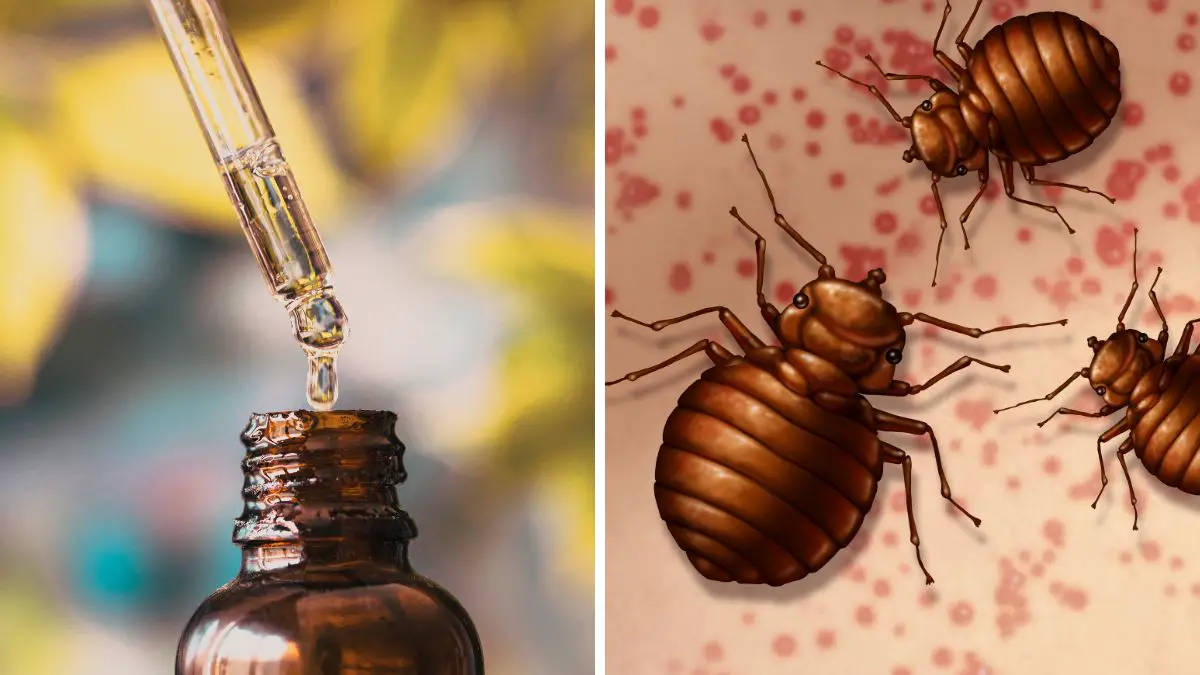If you’ve ever dealt with a bed bug infestation, you know how frustrating it can be.
These tiny pests can quickly turn your peaceful nights into sleepless ones, leaving you with itchy bites and a sense of unease.
While there are many chemical-based insecticides available on the market, they often come with their own set of risks.
If you’re looking for a natural and effective solution to eliminate bed bugs, look no further than tea tree oil.
Understanding Bed Bugs and Their Impact
Before we dive into the details of using tea tree oil for bed bugs, let’s first understand the problem we’re dealing with.
Bed bugs are small, reddish-brown insects that feed on the blood of humans and animals.
They are primarily active at night and hide in cracks and crevices during the day, making them difficult to detect and eliminate.
Bed bug bites can cause itching, redness, and even allergic reactions in some individuals.
They can also be a source of significant distress and discomfort, affecting both your physical and mental well-being.
The Power of Tea Tree Oil as an Insecticide
Tea tree oil, also known as melaleuca oil, is a natural essential oil derived from the leaves of the tea tree (Melaleuca alternifolia).
It has a long history of use as an insecticide and repellent, making it an excellent choice for combating bed bugs.
The oil contains terpenes, compounds known for their insecticidal properties.
When applied to bed bugs, tea tree oil penetrates their exoskeleton and suffocates them, effectively killing these pesky pests.
Using Tea Tree Oil to Eliminate Bed Bugs
To harness the power of tea tree oil and eliminate bed bugs from your home, follow these simple steps:
Step 1: Preparation Before you begin, make sure to declutter and clean your living space. Remove any unnecessary items, vacuum the floors and furniture, and wash your bedding in hot water. This will help eliminate hiding spots for bed bugs and improve the effectiveness of tea tree oil treatment.
Step 2: Dilution Tea tree oil should always be diluted before use to avoid skin irritation. Mix 10-15 drops of tea tree oil with a cup of water or a carrier oil such as coconut oil or almond oil. Shake well to ensure proper blending of the oil.
Step 3: Application Using a spray bottle, apply the diluted tea tree oil mixture to areas prone to bed bug infestations. Focus on the seams and crevices of your mattress, bed frame, furniture, and baseboards. You can also spray the oil directly on any visible bed bugs to kill them on contact.
Step 4: Repeat the application every few days until you no longer see any signs of bed bugs. It’s important to note that tea tree oil may not eliminate all bed bugs in one treatment, as these pests can be resilient. Consistency and persistence are key to successfully eradicating the infestation.
Enhancing the Effectiveness of Tea Tree Oil with Other Essential Oils
While tea tree oil alone can be effective against bed bugs, combining it with other essential oils can enhance its insecticidal properties.
Here are a few essential oils that can be used in conjunction with tea tree oil to create a potent bed bug spray:
- Lavender Oil: Known for its calming scent, lavender oil also has insect-repellent properties. Mix a few drops of lavender oil with tea tree oil to create a fragrant and effective bed bug spray.
- Peppermint Oil: The strong scent of peppermint oil is a natural deterrent for bed bugs. Combine it with tea tree oil for a refreshing and powerful bed bug spray.
- Eucalyptus Oil: Eucalyptus oil has a strong and distinctive scent that bed bugs dislike. Mix it with tea tree oil to create a potent bed bug repellent.
Safety Precautions and Tips
While tea tree oil is generally safe to use, it’s important to keep the following precautions in mind:
- Patch Test: Before applying tea tree oil to larger areas, perform a patch test on a small section of your skin to check for any adverse reactions or allergies.
- Dilution: Always dilute tea tree oil before use to prevent skin irritation. Avoid using undiluted tea tree oil directly on your skin.
- Pets and Children: Keep tea tree oil out of reach of pets and children. Some essential oils can be toxic to animals, so exercise caution when using them in your home.
- Ventilation: When applying tea tree oil, make sure the room is well-ventilated to avoid inhaling excessive amounts of the oil.
- Consult a Professional: If you have a severe bed bug infestation or if your efforts with tea tree oil are not producing the desired results, it may be best to consult a professional pest control service for assistance.
Wrapping it Up
In conclusion, tea tree oil has the potential to be an effective natural remedy for bed bugs.
Its insecticidal properties can kill bed bugs on contact, but it may not eliminate all bugs or prevent future infestations.
Using tea tree oil as part of a comprehensive approach that includes regular treatments and preventative measures can increase its effectiveness.
However, it’s important to note that individual results may vary, and tea tree oil may not work for everyone.
If you have a severe or persistent bed bug infestation, it’s recommended to consult with a professional pest control service for more robust and targeted treatment options.
Remember, tea tree oil is just one tool in the battle against bed bugs.
Combining it with other natural remedies and proactive measures can help you reclaim your home from these annoying pests.
So, give it a try and see if tea tree oil works its magic in your fight against bed bugs!

